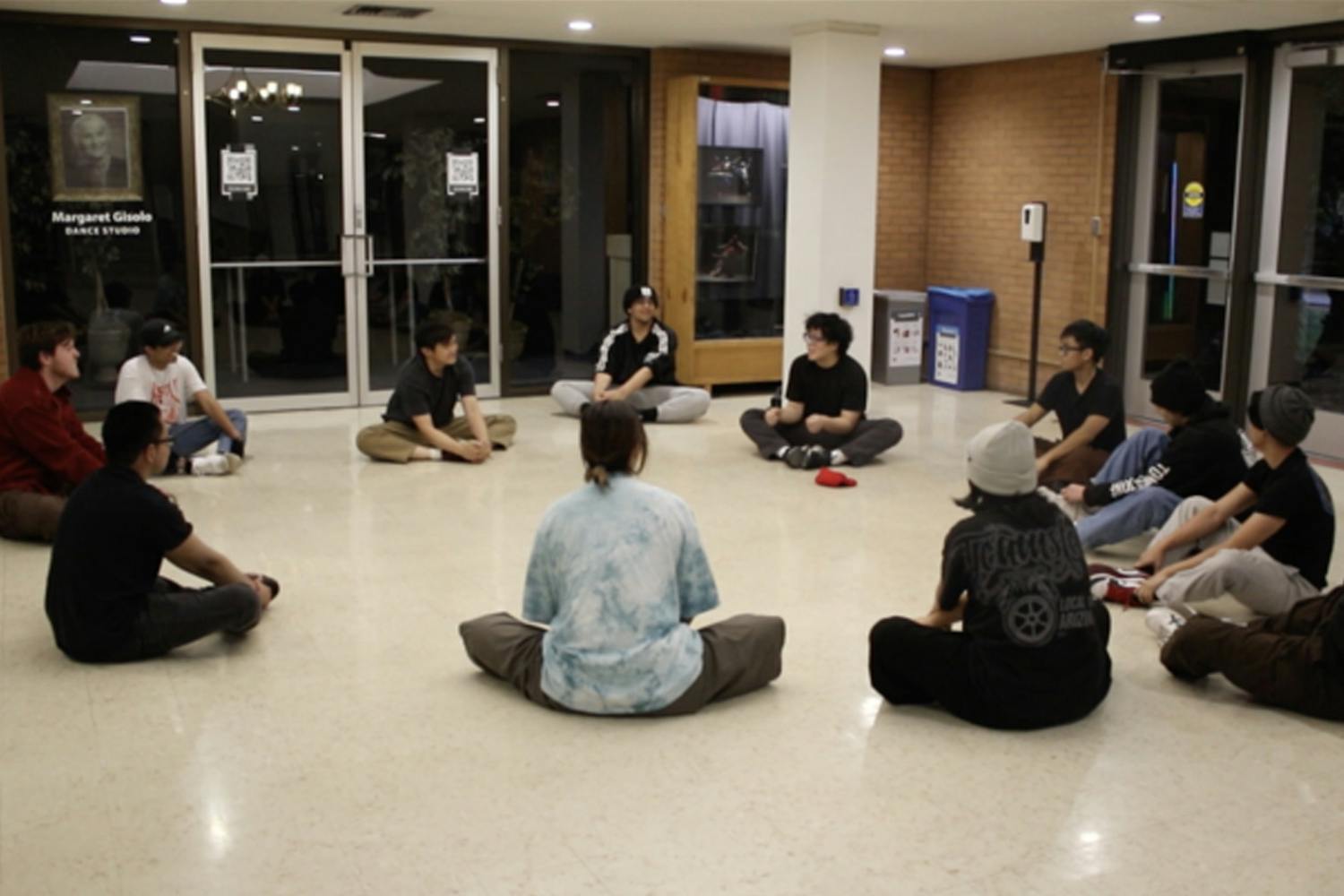While ASU claims to be a sustainable institution, its endowment is run by BlackRock, a perpetrator of carbon emissions, and ASU's strategy of using carbon offsets to reach "net-zero" goals is dubious at best.
ASU's $1.25 billion endowment is an important source of funding, and is made up of recurring gifts the University invests to create long-term revenue.
ASU claims its endowment is a source of sustainable and green funding. One of the reasons used to support these claims is that its outsourced chief investment officer is BlackRock, a global investments manager that manages over $10 trillion in assets. According to ASU's endowment website, BlackRock is a sustainable leader. "Like ASU, BlackRock has been a leader for sustainability and environmentally responsible practices," the website says.
However, BlackRock's past and current realities signify the opposite: BlackRock is responsible for financing greenhouse gas emitting sources and militarism around the world.
According to BlackRock's Big Problem, a coalition that includes Amazon Watch, CODEPINK and the Indigenous Environmental Network, BlackRock is a primary investor in organizations contributing to the deforestation of the Amazon.
New York City put BlackRock, which it uses for asset management, under review for possibly straying from minimum climate standards, and BlackRock bragged in February about being a primary investor in fossil fuels.
ASU's claims of BlackRock being a sustainable organization are flat-out lies. These lies attempt to bring truth to the myth of green capitalism, which says an economic system based on domination, exploitation and bigotry, can somehow be environmentally friendly.
"...the relationship may evolve as our asset base grow," an ASU spokesperson said in a statement.
Not only does ASU use a polluting, war-profiteering capitalist firm as its investment officer, it utilizes a dubious-at-best strategy to deal with its carbon emissions.
READ MORE: How ASU bought its way to carbon neutrality
ASU's primary strategy for sustainability is based on carbon offsets. The University has paid thousands to different organizations that utilize different methods to reduce carbon emissions. There are multiple issues associated with carbon offsets, but the tactic itself has been argued to be ineffective by activists and scientists alike.
"Reducing ASU's carbon emissions has been and remains our overriding objective; yet, carbon offsets provide a bridge to addressing our remaining campus emission sources. We are working to purchase carbon offsets that are credible, high-quality and fiscally responsible," an ASU spokesperson said.
Scientists have argued that net zero is an ineffectual term that allows the fossil fuel industry to keep polluting while changing little about the operations that got us to this cataclysmic point in the first place. In the United States, historically the world's greatest emitter of carbon emissions, the system that got us here is capitalism.
Corporations and organizations such as BlackRock will frequently greenwash their practices, or, in other words, pretend the actions that exploit the natural environment and make them money are somehow sustainable.
"Anything that will fall under this same capitalistic model where people are just finding a way to profit off of carbon, I mean, that's a serious red flag right away," said Teddy Ogborn, the War is Not Green coordinator at CODEPINK.
CODEPINK, a women-led grassroots organization dedicated to taking on militarism, supporting human rights and redirecting resources to life-affirming programs, has campaigned against BlackRock for its ties to weapons companies and the fossil fuel industry.
BlackRock has investments in Raytheon and Lockheed Martin, two military weapons contractors that contribute to the proliferation of war around the world. Raytheon and Lockheed Martin sell weapons to the U.S. and Saudi Arabia, both of which have used those weapons to commit atrocities. The US military also emits more carbon per capita than many industrialized countries.
"(BlackRock) will speak out against coal companies and oil companies in a symbolic way, but when it comes to weapons manufacturers, they will not say a word," said Nancy Mancias, a campaign organizer at CODEPINK.
Like BlackRock, ASU's rhetoric advances the green language companies like BlackRock utilize. But, of course, both institutions fail because they seek to do the impossible – to reconcile capitalism and the climate crisis it created.
Until this contradiction is acknowledged and other routes forward are taken, ASU and BlackRock will continue to add to the blood on their hands.
"BlackRock's capabilities in sustainable investing are recognized as industry leading. However, the scope of the work of BlackRock is in no way related to or has any effect on the efforts by the university to achieve net zero carbon emissions in its operations. It is an investment firm unrelated to ASU’s sustainability operations," an ASU spokesperson said.
Despite BlackRock supposedly not being related to ASU's "sustainability operations," ASU still supports the firm through the partnership.
The time to act on the climate crisis is dwindling. As the latest Intergovernmental Panel on Climate Change report said, "Any further delay in concerted anticipatory global action on adaptation and mitigation will miss a brief and rapidly closing window of opportunity to secure a livable and sustainable future for all."
The Young Democratic Socialists of America at ASU led a Green New Deal divestment campaign last year, and ASU students would be wise to push for another.
Edited by Sadie Buggle, Wyatt Myskow and Piper Hansen.
Reach the columnist at astigile@asu.edu and follow @StigileAaron on Twitter.
Editor's note: The opinions presented in this column are the author's and do not imply any endorsement from The State Press or its editors.
Want to join the conversation? Send an email to opiniondesk.statepress@gmail.com. Keep letters under 500 words and be sure to include your university affiliation. Anonymity will not be granted.
Like The State Press on Facebook and follow @statepress on Twitter.

Aaron Stigile is an opinion columnist at The State Press. He previously wrote for The Defiant Movement and is working toward a bachelor’s degree in Journalism and Mass Communication. He is also working toward a minor in Spanish and a certificate in Cross-Sector Leadership.




